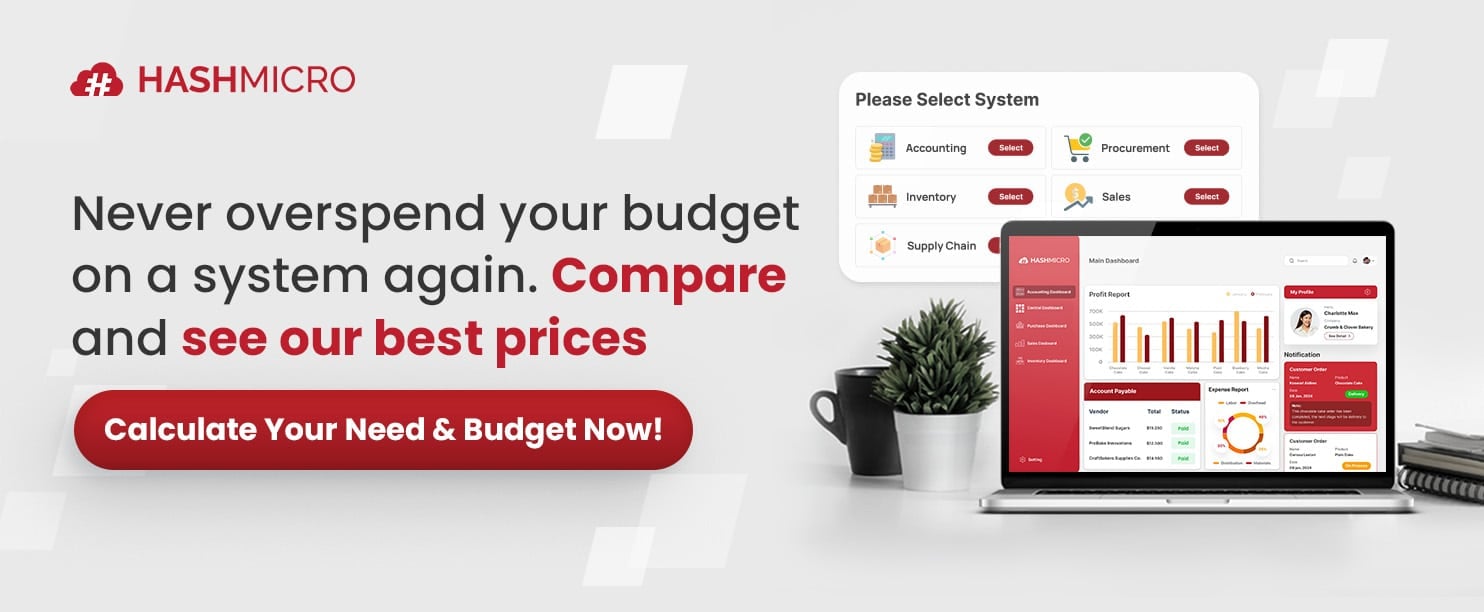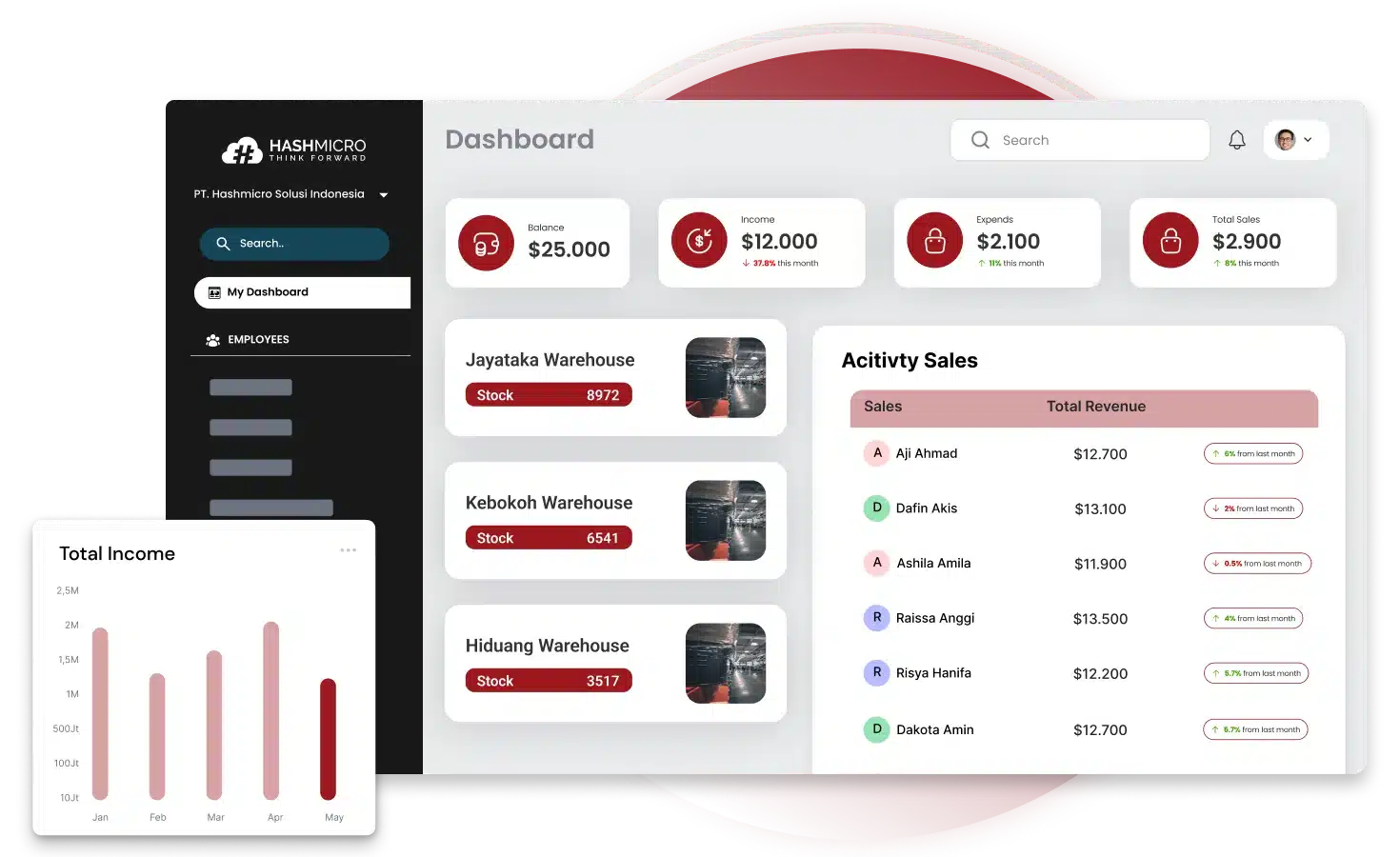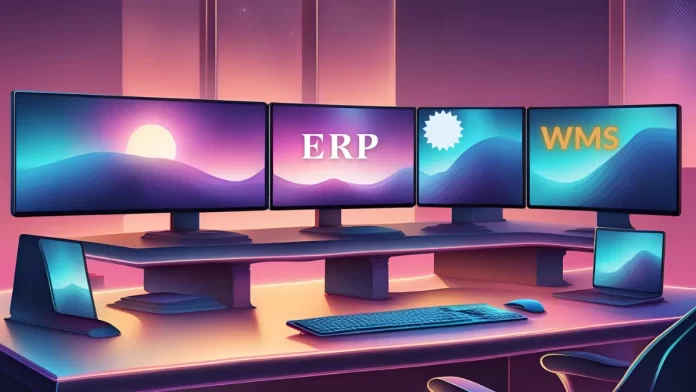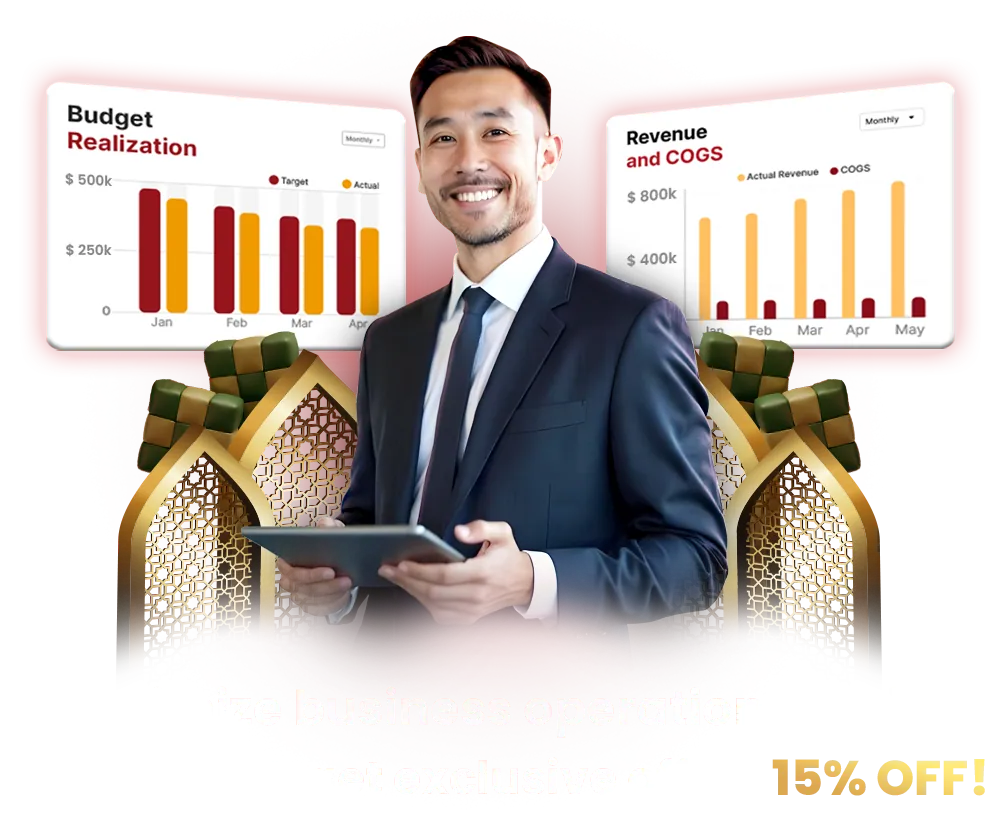Effectively managing the flow of data and products is essential to maintaining productivity and competitiveness in business operations and logistics. Technological advancements allow businesses to access various software solutions to streamline operations and improve productivity.
Warehouse Management Systems (WMS) and Enterprise Resource Planning (ERP) systems are two of the most popular choices. But first, what are WMS and ERP, and how are they different? Which ERP and WMS options are best for your unique requirements?
Making the best choice for your business requires understanding the key differences between ERP and WMS software, despite their apparent similarities. This article will review the benefits of each system and help you decide which would be the best fit for your company, given its specific requirements.
Key Takeaways
|
Table of Content
Content Lists

What is ERP?
Comprehensive software programs known as enterprise resource planning (ERP) solutions are made to assist companies in better handling and organizing their day-to-day operations. ERP software collects and arranges data from multiple departments, including finance, human resources, procurement, and inventory management, acting as a central hub.
ERP software gives businesses a comprehensive picture of their operations by combining these features into a single, integrated platform. It facilitates better decision-making and increases operational efficiency. ERP systems are essential for improving corporate productivity, supporting long-term growth, and increasing efficiency.
Because ERP solutions are adaptable and adjustable, companies can customize the system to meet operational requirements and goals. ERP simplifies complicated tasks, making it a crucial tool for companies looking to streamline their operations and remain competitive.
What is WMS?
A warehouse management system (WMS) software program is created to assist companies in effectively managing and overseeing their warehouse operations. It provides features and capabilities to help handle incoming and departing shipments, track inventory, and optimize other warehouse operations.
It ensures that products are perfectly located and shipped at the correct time by automating these processes and offering real-time insights into inventory movements. Ultimately, a WMS helps companies to efficiently manage their stock, reduce mistakes, and boost efficiency in the warehouse setting.

After reviewing each ERP and WMS definition, you might wonder what the main difference is between ERP and WMS systems. Therefore, we shall outline the key distinctions between ERP and WMS in the list below:
1. Main focus
ERP systems are designed to manage various corporate functions, such as purchasing, production, inventory control, finance, and human resources. Their primary objective is integrating all corporate operations into a single platform, enabling better organizational decision-making and offering detailed insight.
WMS software, unlike ERP, is specially designed to manage warehouse operations. It guarantees the effective use of warehouse space and optimizes goods storage, shipping, and receiving. The WMS system seeks to precisely control inventories and the flow of goods, particularly in the warehouse.
2. Scope of functions
The second difference between ERP and WMS is their functionality. ERP systems involve a wide range of departments, including accounting, human resources, marketing, production, and inventory, and offer a comprehensive solution for controlling the entire business process.
On the other hand, the WMS system’s focus is restricted to warehouse management. WMS software manages logistics activities like receiving, storing, picking, packing, and shipping. Even though it can be connected with ERP, its primary functions are still inventory management and warehouse operations.
3. Scalability
ERP is scalable and can be modified to meet changing corporate requirements. ERP may adjust with the business, whether that change is in regulations, commercial expansion, or the addition of new locations.
WMS software’s scalability, on the other hand, is more concentrated on storage capacity and inventory quantities. By guaranteeing that warehouse space is used as efficiently as possible and that inventory is always accurate, WMS systems assist companies with expanding logistics.
4. Key benefits
ERP’s main advantages include reduced data duplication, improved operational visibility, and faster, better-informed decision-making. ERP allows management to access all information from several departments in real-time, facilitating more efficient strategies.
WMS systems offer advantages in improved warehouse operational efficiency, fewer shipping errors, and more accurate inventory management. They also help maximize storage space and guarantee that products are always ready for shipping when needed.
5. Impact on business processes
ERP as a system impacts every aspect of business operations, including sales and production. ERP enables businesses to coordinate and effectively manage their operations, eventually improving overall performance.
However, WMS software directly impacts the effectiveness of warehouse and logistics operations. By guaranteeing on-time delivery, the system lowers storage expenses, ensures the efficient flow of items in the warehouse, and increases customer satisfaction.
ERP vs WMS, Things to Consider Before Choosing
Depending on your particular requirements and priorities, considering several criteria is critical when deciding between an ERP and a WMS. The following list is important factors to help you determine how to decide if ERP or WMS is better for your company:
1. Business needs
Every business has various needs depending on its size, structure, and level of operational complexity. ERP is a complete solution for handling a company’s finances, personnel, inventories, and manufacturing, among other areas.
ERP systems enable thorough visibility and departmental process automation, making them suitable for businesses consolidating all corporate operations into a single platform. WMS, on the other hand, is only concerned with managing warehouse operations. A WMS might be more relevant if a business requires increased stock management, shipping, and storage efficiency.
2. Budget
Because ERPs have many enterprise-wide functionalities, they are usually more expensive. The costs associated with ERP setup, training, and upkeep can be substantial, and extra resources are frequently necessary to ensure their best usage.
Conversely, a WMS is a more specific and frequently more economical solution because it just addresses warehouse management. Selecting a WMS over an ERP can be more cost-effective for a business with modest inventory and warehouse management requirements.
3. Adaptability
ERP is built with a firm framework to guarantee consistency and stability throughout the company. However, this framework limits ERP’s ability to adapt to unforeseen circumstances or abrupt changes. ERP customization usually requires a significant amount of time and money.
On the other hand, because WMS is designed to manage real-time changes in workflow and inventory, it has greater flexibility when adjusting warehouse operations. WMS may be more adaptable than ERP for businesses that want a system that can swiftly adapt to changes in day-to-day operations.
The factors above may help businesses decide whether ERP or WMS is the best option for their operational needs. Check our price scheme below for more information on ERP systems.

Boost Your Productivity with a Comprehensive System from HashMicro!

HashMicro is the best-in-class ERP Software in Malaysia to advance your business. It is a provider with a wide range of functions to provide, regardless of your needs, be they ERP or WMS. HashMicro is a business automation company that offers a range of Cloud ERP solutions to help businesses increase productivity, operational efficiency, and overall business management.
Here are some of the key features of HashMicro ERP system:
-
Built-in Business Intelligence (BI)
Pivot, KPI Scorecard, and Data Visualization are comprehensive BI tools that give companies real-time data for better decision-making. These tools allow users to visualize important indicators quickly, supporting data-driven strategies and increasing productivity.
-
Sheet management
A well-organized sheet management system would help companies track and manage data more easily. It would also improve teamwork and guarantee instant access to reliable data for all departments.
-
Fast stock opname
Automated inventory checks ensure more accurate results by reducing errors and speeding up updates and stock-taking. By offering real-time stock visibility, businesses can manage ideal inventory levels and avoid problems like stockouts and overstocking.
-
Smart transaction bookkeeping
Automated bookkeeping lowers errors and maintains updated financial records by reducing the need for manual data entry. This enhances financial data control and streamlines decision-making, compliance, and budgeting procedures.
-
Real-time reporting
With instant access to updated company reports, companies can monitor performance in real-time. Accurate analytics can help businesses stay competitive and make quick adjustments.
HashMicro offers a scalable and adaptable solution with the newest technology, enabling businesses from various sectors to customize the system to their requirements. Before purchasing, companies wishing to get a thorough rundown of the dashboard and system capabilities can also take advantage of HashMicro’s free demo.
Conclusion
In conclusion, improving business operations and logistics requires warehouse management systems (WMS) and enterprise resource planning (ERP) systems. ERP systems provide a comprehensive picture of operations by integrating and managing key business processes across multiple departments.
With specific capabilities for inventory management and warehouse efficiency, WMS concentrates on streamlining warehouse operations. When deciding between ERP and WMS, it’s crucial to consider your company’s needs and priorities. HashMicro offers sophisticated WMS solutions and ERP systems that can be customized.
If unsure which is best for you, use our free demo to examine the dashboard and get more information.

FAQ about ERP vs WMS
-
What is the difference between ERP and WMS?
An ERP helps you to streamline your entire business. Fit for a specific purpose. A WMS’ sole purpose is to increase productivity and profitability in your warehouse.
-
Is WMS a CRM?
No, WMS (Warehouse Management System) is not a CRM (Customer Relationship Management) system
-
What are the 4 types of WMS?
There are four main types of warehouse management systems: Standalone WMS, Supply Chain Execution Modules, Integrated ERP Systems, and Cloud-Based. Each type offers unique benefits for different warehouse needs.































